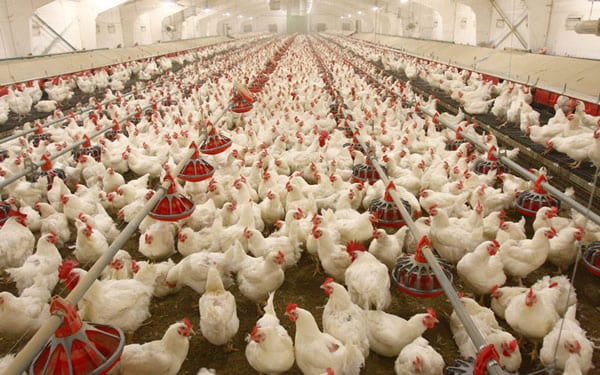POULTRY INDUSTRY CONTRIBUTES 25% TO NIGERIA’S AGRIC GDP — ASSOCIATION
Written by Oluwaseyi Amosun on October 10, 2025

Photo File: Poultry farm
The Poultry Association of Nigeria, FCT chapter, has said that the poultry industry contributes more than 25 per cent to Nigeria’s agricultural Gross Domestic Product.
The association stated this in an interview with the News Agency of Nigeria Today in Abuja, in commemoration of the World Egg Day, celebrated annually on the second Friday of October.
NAN reports that the theme for the 2025 celebration is “Mighty Egg: Packed with Natural Nutrition”.
A Board Member of PAN, FCT Chapter, Mr Bello Ibrahim, said the sub-sector not only contributes greatly to the agricultural GDP but also provides employment to more than 25 million Nigerians, either directly or indirectly.
According to him, this figure represents about 10 per cent of the nation’s total population.
“Currently, Nigeria is the largest egg producer in Africa, providing over 650 million tonnes of eggs annually,” Ibrahim said.
He, however, noted that poultry farmers, especially smallholders who account for over 60 per cent of the sector, face several challenges, including high costs of feed and day-old chicks, poor access to finance, and inadequate government support.
Ibrahim explained that addressing these challenges through government-backed interventions would boost egg and poultry production across the country.
He added that although the Federal Government’s policies had led to a reduction in the cost of maize, the drop had yet to reflect in feed prices for smallholder farmers.
“For anyone to feel the impact of the drop in maize prices, they need to have at least 8,000 layers to produce their own feed. This remains a major challenge for most farmers in the FCT, who make up about 60 per cent of poultry producers,” he said.
He also observed that large-scale producers determine market prices because of their access to cheaper feed production inputs, putting small farmers at a disadvantage.
“If the cost of feed can reflect the current market reality, it will reduce the cost of production for small farmers and lead to lower egg prices for consumers,” he added.
Ibrahim said World Egg Day was aimed at promoting awareness about the nutritional and economic importance of eggs.
“Given the current economic situation, eggs remain the cheapest source of protein available. With between N150 and N200, anyone can buy an egg,” he said.
Similarly, former PAN Chairman, FCT Chapter, Mr Chima Wilson, said this year’s theme highlights the egg’s vital role in promoting health and nutrition.
“Eggs may appear small, but they contain essential nutrients such as protein, vitamins A, E, and B-complex, which are crucial for healthy living,” Wilson said.
He urged governments at all levels to support poultry farmers by reducing the cost of production inputs, providing credit facilities, and creating access to markets.
“Government can assist by offering grants or purchasing eggs from farmers for use in schools, orphanages, and vulnerable communities. This will encourage farmers to continue production,” he said.
Wilson also appealed for tax reliefs and incentives for poultry farmers to sustain the industry’s growth and ensure food security.
NAN






 Eagle Fm
Eagle Fm